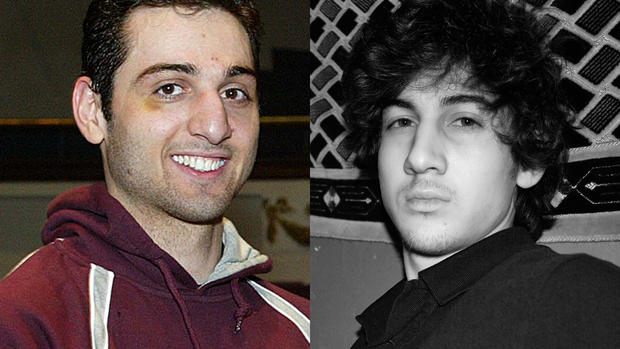Expert: Tsarnaev may avoid execution because of age
The fact that Dzhokhar Tsarnaev was only 19-years-old when
prosecutors allege he built and planted two pressure cooker bombs near the
finish line of the Boston Marathon in April 2013 will play an important role in whether or not he gets the death
penalty, according to Tamar Birckhead, a law professor at University of North Carolina and
former criminal defense lawyer who specializes in juvenile delinquency.
"It's unlikely given his age...," Birckhead said of the likelihood of Tsarnaev being put to death.
Three people were killed and more than 260 were injured in the bombings.Federal prosecutors on Thursday announced they will seek the death penalty against Tsarnaev, now 20, citing allegations that he killed an
MIT police officer as well as an 8-year-old boy, a “particularly vulnerable”
victim because of his age.
They also cited his alleged decision to target the Boston Marathon, “an iconic event that draws large crowds of men, women and children to its final stretch, making it especially susceptible to the act and effects of terrorism.”
Birckhead, who defended Richard Reid, the attempted "shoe bomber," told CBS News' Crimesider that while she isn’t sure if Tsarnaev’s age came into play in the U.S. Justice Department’s decision to pursue the death penalty, she said it should have.
“If you look at the past 100 people who have been executed,
more than a third were under the age of 25 when they committed their crimes, and
20 were under the age of 21,” Birckhead pointed out.
Birckhead said she thinks a trial in the case will be avoided by means of a plea and a sentence of life without parole. But, if it does go to trial, she says, Tsarnaev’s defense attorneys are likely to emphasize his youth when fighting for his life.
“The younger you are, the less culpable you are for your crimes,” Birckhead said. “We know from neuroscience and what we know about brain development that the human brain continues to grow and develop until someone is in their mid-20s.”
She said Tsarnaev’s defense could argue that his age impairs his impulse control, ability to stand up to peer pressure and ability to weigh risks and benefits. It’s likely that his defense team will have him evaluated by a series of experts that can speak to his mental state at the time of the offense as well as his family history and whether he has a history of trauma, Birckhead said.
The fact that Tsarnaev does not have a criminal record and the possibility that he was under the influence of his older brother, 26-year-old Tamerlan Tsarnaev, could also be raised in court, Birckhead said.
“They will make the case that this was not indicative of who [Dzhokhar] is as a human being and it doesn’t rise to the level of mandating death,” she said.
Tsarnaev's case has attracted a high-profile defense team, including Judy Clarke, a San Diego attorney who has negotiated multiple plea agreements
with prosecutors to spare her clients the death penalty, including Susan
Smith, the South Carolina mother convicted in 1995 of drowning her two young
sons; Jared
Loughner, who killed six and injured 13 others including former U.S. Rep.
Gabrielle Giffords in a 2011 shooting; "Unabomber" Ted Kaczynski; and
Zacarias Moussaoui, who pleaded guilty to helping mastermind the Sept. 11, 2011
attacks.
Birckhead said another factor that could make it hard for prosecutors to secure a death penalty sentence is if the trial is held in Massachusetts, a state that abolished its own death penalty in 1984.
According to a report on CBS This Morning, recent polling shows that a majority of people in Massachusetts support a sentence of life in prison without parole for Tsarnaev as opposed to the death penalty.
Two other federal death penalty cases have been brought in Massachusetts: In 2001, Kristen Gilbert, a former veterans hospital nurse who killed four patients by overdosing them was spared the death penalty by a jury. Gary Lee Samson pleaded guilty in the carjack killings of two Massachusetts men was sentenced to death in 2003, but the punishment was overturned and he is awaiting a new penalty trial, reports the Associated Press.
Since the federal death penalty was reinstated in 1988, 70 death sentences have been imposed, but only three have been carried out, including the execution of Oklahoma City bomber Timothy McVeigh in 2001.
Tsarnaev has pleaded not guilty. No trial date has been set.

